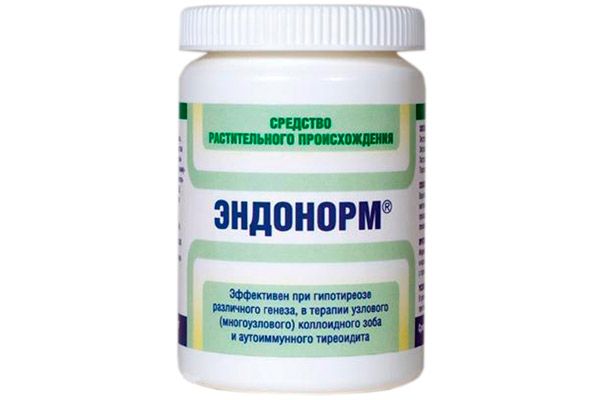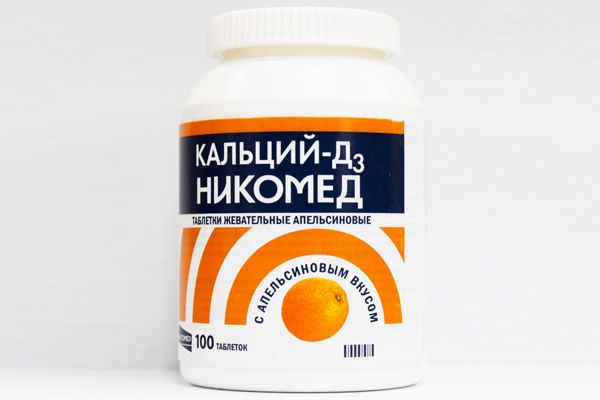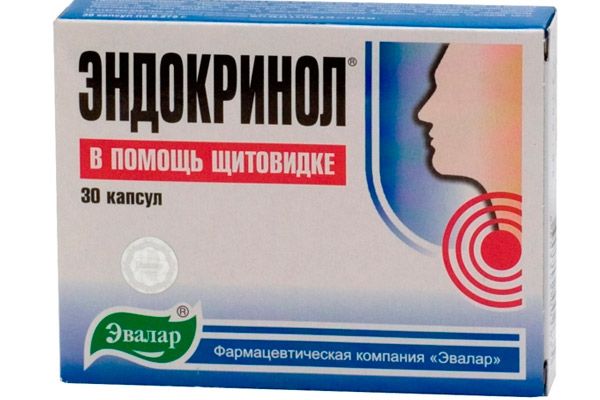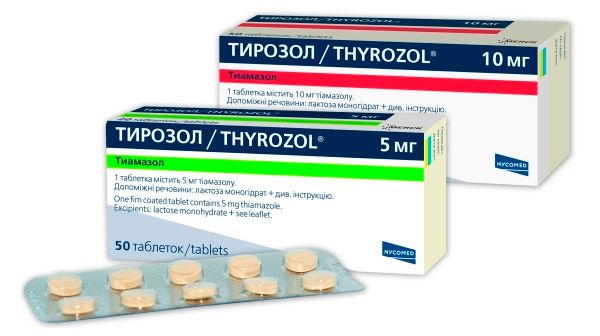Medical expert of the article
New publications
Treatment of hyperthyroidism
Last reviewed: 04.07.2025

All iLive content is medically reviewed or fact checked to ensure as much factual accuracy as possible.
We have strict sourcing guidelines and only link to reputable media sites, academic research institutions and, whenever possible, medically peer reviewed studies. Note that the numbers in parentheses ([1], [2], etc.) are clickable links to these studies.
If you feel that any of our content is inaccurate, out-of-date, or otherwise questionable, please select it and press Ctrl + Enter.

Activation of the thyroid gland leads to an increase in the production of an enzyme that negatively affects the normal functioning of the entire human body.
To prevent irreversible changes, timely treatment of hyperthyroidism is necessary.
Drug treatment
The main medication prescribed for increased production of thyroid hormone by the thyroid gland is antithyroid drugs (or antithyroid drugs). This group of drugs is prescribed for mild hyperthyroidism, diagnosis of diffuse toxic goiter, when the patient is under 50 years old.
In some cases, the endocrinologist initially prescribes radioactive iodine therapy. This happens when diagnosing diffuse toxic goiter, when the patient is over 50 years old, and also if the nodes on the goiter are significantly enlarged.
Thyrostatic drugs are represented by thionamides, thiourea preparations and methylmercaptoimidazole preparations: thiamazole, carbimazole and propylthiouracil.
In exceptional cases, treatment of hyperthyroidism can backfire and cause hypothyroidism. Most often, this result can be achieved after radioactive iodine therapy, but taking antithyroid medications is not an exception.
It is very important not to miss the appearance of symptoms indicating the development of hypothyroidism and to inform your doctor about it.
Endonorm
The broad-spectrum drug Endonorm is prescribed for the treatment of hyperthyroidism in individual dosages:
For preventive purposes, it is recommended to take one capsule per day for a month. The effective time for taking is a quarter of an hour before meals. The frequency of the preventive course is at least twice a year.
In mild cases of the disease - one capsule twice a day a quarter of an hour before meals. Duration of therapy is one month. If the clinical picture of the disease requires continued treatment, take a 10-day break and begin the next monthly course of treatment.
In case of diagnosis of a moderate degree - one capsule three times a day a quarter of an hour before meals. Duration of therapy - 40 days. If the clinical picture of the disease requires continuation of treatment, take a 10-day break and start the next monthly course of treatment.
In severe thyrotoxicosis, Endonorm is prescribed two capsules three times a day. The effective time for taking is a quarter of an hour before meals. After the disappearance of pathological symptoms, the dosage of the drug can be reduced to one capsule three times a day.
To achieve maximum effect, taking Endonorm should be combined with a corrected diet.
Contraindications for taking Endonorm include hypersensitivity to the components of the dietary supplement, as well as inflammation of the mucous membrane of the gastrointestinal tract, pregnancy, lactation and children under 12 years of age.

The drug may cause side effects expressed as an allergic and/or dyspeptic reaction to the composition of the drug.
Calcium
The thyroid gland is involved in the process of regulating calcium in human blood by producing calcitonin, which helps reduce the level of calcium in human blood.
Parathyroid hormone, produced by the parathyroid gland, on the contrary, helps to increase the level of calcium in the blood.
In some cases, thyroid dysfunction can be provoked not only by a decrease or increase in the production of the hormone thyroxine, but also by an excess or deficiency of calcitonin secretion. This cause of thyroid dysfunction requires the introduction of calcium-containing drugs into therapy (in case of hypocalcemia) or, conversely, isotonic saline solutions, loop diuretics, glucocorticoids or chloroquines (in case of hypercalcemia).

In hyperthyroidism, the concentration of vitamin D decreases, which leads to deterioration of the absorption of calcium entering the human body with food. Therefore, calcium-containing drugs are prescribed together with vitamin D in the treatment protocol for hyperthyroidism.
 [ 3 ], [ 4 ], [ 5 ], [ 6 ], [ 7 ], [ 8 ], [ 9 ]
[ 3 ], [ 4 ], [ 5 ], [ 6 ], [ 7 ], [ 8 ], [ 9 ]
Endocrinol
This drug is a biologically active supplement and is a natural remedy that can normalize the functioning of the thyroid gland. It is prescribed for hypothyroidism and hyperthyroidism. Endocrinol is a source of flavonoids and vitamin E.
The recommended dosage of the drug is two capsules per day. The most effective time for taking is with food. The duration of the treatment course is three months.

Contraindications to the drug include pregnancy and lactation in women, as well as hypersensitivity to the components of the drug.
 [ 10 ], [ 11 ], [ 12 ], [ 13 ], [ 14 ], [ 15 ]
[ 10 ], [ 11 ], [ 12 ], [ 13 ], [ 14 ], [ 15 ]
Tyrozol
The antithyroid drug thyrozol is effectively used in the treatment of hyperthyroidism to reduce the levels of hormones produced by the thyroid gland (thyroxine and triiodothyronine).
The medicine is taken orally, after meals. The tablet must be taken whole, with a small amount of water.
On the recommendation of an endocrinologist, the daily dose of tyrozol can be taken either once a day or divided into two or three doses.
The initially prescribed amount of the drug is taken at a strictly fixed time (after breakfast for one daily dose).
The recommended daily dose of the drug is from 1.25 to 10 mg. The duration of treatment is individual and adjusted by the doctor.
The initial dosage of tyrozol for children aged 3 to 17 years is calculated from 0.3 to 0.5 mg per kilogram of the child's weight, but not more than 40 mg daily. The resulting daily dose is divided into two or three doses.
During pregnancy, the recommended dose is 2.5 mg, but not more than 10 mg per day.

In case of liver dysfunction, the patient is prescribed the minimum effective amount, taken under constant supervision of a doctor.
Contraindications to thyrozol include hypersensitivity to thiamazole and thiourea derivatives or other components of the drug, granulocytopenia, lactase deficiency, galactose intolerance, glucose-galactose malabsorption syndrome, cholestasis, and children under three years of age.
Drug treatment of concomitant diseases in hyperthyroidism
Hyperthyroidism often causes anxiety disorders and cardiovascular problems.
 [ 16 ], [ 17 ], [ 18 ], [ 19 ], [ 20 ], [ 21 ], [ 22 ], [ 23 ], [ 24 ]
[ 16 ], [ 17 ], [ 18 ], [ 19 ], [ 20 ], [ 21 ], [ 22 ], [ 23 ], [ 24 ]
Afobazol
The anxiolytic drug afobazole does not have a negative effect on the thyroid gland and can be used in the treatment of hyperthyroidism if the patient has a history of sleep disorders and anxiety.
Afobazole is prescribed orally at 10 mg three times a day. The duration of treatment is from two to four weeks.
If necessary, the daily dosage can be doubled and the duration of therapy up to three months.
Contraindications to Afobazole include individual intolerance to the components of the drug, including monosaccharides, galactosemia and lactase deficiency.
Taking Afobazole may cause side effects in the form of allergy symptoms. Less frequently, headaches may occur that do not require discontinuing the drug.
 [ 25 ], [ 26 ], [ 27 ], [ 28 ], [ 29 ]
[ 25 ], [ 26 ], [ 27 ], [ 28 ], [ 29 ]
Bisoprolol
In case of chronic heart failure, angina pectoris and arterial hypertension, the cardiologist prescribes the drug bisoprolol. The drug interaction of bisoprolol and antithyroid drugs is neutral, which allows bisoprolol to be effectively taken against the background of hyperthyroidism treatment.
Beta1-adrenoblocker bisoprolol is prescribed orally, regardless of food intake. The recommended time of administration is morning.
In stable angina and arterial hypertension, the drug is initially prescribed in a dosage of 2.5 to 5 mg per day. The maximum permissible daily amount is 20 mg.
In chronic heart failure, depending on the clinical features of the disease, the initial dosage is 1.25 mg - the first week of therapy. One morning dose of the drug is recommended.
In the second week of treatment, the dose of bisoprolol is doubled and amounts to 2.5 mg daily. The regimen remains unchanged.
Third week – one daily dose of 3.75 mg. Period from 4 to 8 weeks – the dosage is 5 mg. Period from 9 to 12 weeks – the dosage is 7.5 mg. Then -10 mg, which corresponds to the maximum permissible daily dosage.
The duration of therapy is determined by the cardiologist individually.
Contraindications to the use of bisoprolol include increased intolerance to the components of the drug, sick sinus syndrome, bradycardia, heart failure in the decompensation stage, metabolic acidosis, arterial hypotension, cardiogenic shock, Raynaud's disease, bronchial asthma, pregnancy and lactation.
Taking bisoprolol can cause side effects: headache and abdominal pain, dizziness, depression, insomnia, increased fatigue, visual impairment, diarrhea, constipation, allergic rhinitis, nausea and vomiting.
 [ 30 ]
[ 30 ]
Prohibited drugs for hyperthyroidism
Hyperthyroidism is often combined with other diseases, both endocrine and non-endocrine, so it is very important to know which medications should not be taken if you have been diagnosed with thyrotoxicosis.
Iodine for hyperthyroidism
Iodine and iodine-containing drugs are not prescribed when diagnosing hyperthyroidism. An exception may be the situation when this diagnosis is made to a woman for the first time during pregnancy. The obstetrician-gynecologist monitoring the pregnancy may still prescribe an iodine-containing drug, but in limited dosages. Iodine for hyperthyroidism up to 50 mcg daily should not harm either the woman or the fetus. Doses above this are undesirable.
Iodomarin
The drug iodomarin is prescribed to replenish the lack of iodine in the patient's body. Therefore, its use in the treatment of hyperthyroidism is unacceptable.
Thyroxine
One of the hormones produced by the thyroid gland is thyroxine. Therefore, the drug thyroxine, the active ingredient of which is the enzyme thyroxine, is prescribed to patients suffering from a deficiency of this substance. Therefore, it is impossible to use the drug in the treatment of hyperthyroidism caused by excess thyroxine in the body.
Arithmil
The antiarrhythmic drug aritmil is not allowed to be taken by a patient with a history of hyperthyroidism.
Vitamins
Taking a vitamin complex does not affect the treatment of hyperthyroidism in any way. However, studies have shown that a deficiency of vitamin D and B 12 in the human body can become a catalyst for the development of hyperthyroidism.
Therefore, when prescribing a treatment protocol for hyperthyroidism, the endocrinologist must include vitamin B12 and vitamin D, or a vitamin and mineral complex based on the substances cyanocobalamin (B12) and viosterol (D).
Folk remedies
In the treatment of hyperthyroidism, with the permission of the doctor, you can also use folk remedies. Its "medicines" are effectively used for both external and internal use.
Recipe No. 1 – clay compresses:
- Water is used to dilute the clay to the consistency of thick sour cream.
- “The medicine is applied in a thin layer onto the fabric.
- The compress is applied to the goiter area and left for about an hour.
- During the day, you can do 2-3 treatment procedures. In this case, new clay is taken for each procedure.
Recipe No. 2 – persimmon tincture:
- Obtain juice from the fruit.
- Mix the juice with alcohol in the following ratio: five parts persimmon juice and one part medical alcohol (it can also be replaced with vodka, but in this case its quantity increases to two parts).
- Let it sit for 24 hours.
- Drink the “medicine” one tablespoon before meals three times a day.
 [ 31 ]
[ 31 ]
Walnut for hyperthyroidism
A storehouse of many useful elements, including natural iodine, is the walnut. In hyperthyroidism, it is useful for its ability to normalize the endocrine system.
In thyrotoxicosis, radioactive iodine accumulates in the thyroid gland, causing a decrease in red blood cells in the blood. The radioactive element is capable of removing only natural iodine from the secretory glands. Its green fruits are especially useful.
The recipe for preparing the “medicine” is simple:
- Unripe fruits are filled into a three-liter glass jar. It will take approximately 1.5 kg of nuts.
- Vodka or ethyl alcohol diluted to 40 o is poured into the container.
- The container is sealed.
- Place in a cool, dark place for three days. Otherwise, the fruits will darken and oxidize.
- Then roll it up more tightly (for example, you can roll it up with a canning lid) and leave it for another three weeks.
- Strain the finished product and store in a cool place.
- Drink one teaspoon 20 minutes before meals three times a day.
Flaxseed oil
Flaxseed oil can also be used in the treatment of hyperthyroidism. It normalizes the thyroid gland function to a certain extent. But flaxseed oil should be taken after examination and with the permission of a doctor, since traditional medicine recipes are an auxiliary method of treating the disease.
It is recommended to take flaxseed oil on an empty stomach, one tablespoon three times a day. The duration of such therapy is two to three weeks. Then a two-month break and the course can be repeated.
Another recipe for using flaxseed oil in the treatment of hyperthyroidism is to mix it in a 2:1 ratio with dandelion juice. The resulting composition is applied in the form of applications to the front of the neck above the goiter. The duration of the procedure is 1 - 2 hours.
 [ 32 ], [ 33 ], [ 34 ], [ 35 ]
[ 32 ], [ 33 ], [ 34 ], [ 35 ]
Herbal treatment
In hyperthyroidism, herbal treatment is also widely used, the list of which is quite long: knotweed, valerian, white cinquefoil, wood sorrel, scaly-leaved, arnica, lemon balm, chicory, oregano, seaweed, blackhead. Here are just a few effective recipes:
Recipe No. 1 – chicory tincture:
- Wash the root of the plant, dry and chop.
- Pour two glasses of boiling water over one tablespoon of the plant product.
- Place on fire and leave for three minutes from the moment it boils.
- Drink the decoction three times a day for two days.
- Chicory normalizes the functioning of the endocrine system and reduces the amount of hormones in the blood.
Recipe No. 2 – medicinal decoction:
- First, prepare a mixture by taking the following medicinal plants in equal parts:
- valerian rhizome,
- sagebrush,
- lemon balm,
- yellow mullein,
- plantain,
- rowan berries,
- sage,
- yarrow,
- sweet clover,
- wild strawberry leaves.
- Grind all ingredients and take 10 g of the mixture.
- Pour 300 ml of water into a container and add the mixture.
- Keep in a water bath for a quarter of an hour.
- Wrap in a towel and leave to infuse for an hour.
- Strain and drink warm, 50 ml four times a day 15 minutes before meals.
The duration of the course of treatment for hyperthyroidism is 1.5 - 2 months. If a repeat course is necessary, a break of three to four weeks should be taken.
Recipe No. 3 – medicinal decoction:
- First, prepare a mixture by taking the following medicinal plants in equal parts:
- hawthorn berries,
- fireweed leaves,
- sagebrush,
- calendula,
- chamomile,
- dried fruit,
- linden flowers,
- rose hips.
- Grind all ingredients and take 10 g of the mixture.
- Pour 300 ml of water into a container and add the mixture.
- Keep in a water bath for 10 minutes.
- Wrap in a towel and leave to infuse for a couple of hours.
- Strain and drink warm, 70 ml 3-4 times a day 30 minutes before meals.
The duration of the course of treatment for hyperthyroidism is 1.5 - 2 months. If a repeat course is necessary, a break of three to four weeks should be taken.
White cinquefoil for hyperthyroidism
The high content of natural iodine allows the use of white cinquefoil for hyperthyroidism. Long-term use of 10% alcohol tincture of this plant helps to normalize the thyroid gland.
You can also prepare an alcohol infusion of white cinquefoil at home:
- Take the root of the plant, wash it, dry it and grind it.
- Pour 50 g of the plant product with half a liter of vodka or alcohol diluted to 40 o.
- Leave to infuse in a dark place for 14 days. Strain.
- Add the pulp again to 250 l of alcohol and leave for another 14 days. Strain.
- Combine the tincture from the first and second straining.
- Put 20 drops of the "medicine" into a glass, dilute with a small amount of water. Take before each meal. The course lasts a month. If repeated treatment is necessary, take a week's break and the course of therapy can be repeated.
At the initial stage of the disease, three such courses are usually sufficient.
Homeopathy
In the treatment of hyperthyroidism, homeopathic remedies are also used, such as: sepia, calcium carbonicum, kalium carbonicum, causticum, ammonium carbonicum, graphitis, thuja, conium, digitalis, lycopodium, bromum.
For the treatment of hyperthyroidism, lycopodium is prescribed in dilutions of 12 and 30.
According to the instructions, lycopodium should not be prescribed to patients with individual intolerance to the plant club moss, with severe liver disease, women during pregnancy and lactation, as well as children under three years of age.
The drug can also cause side effects: rash, hyperemia of the skin, itching.
Kalium carbonicum is more effective in the first and second dilutions.
Surgical treatment
If conservative treatment does not bring the expected positive result, the endocrinologist is forced to prescribe surgical treatment of hyperthyroidism (thyroidectomy) to the patient.
The following facts become indications for surgery:
- No lasting effect was observed over two years of adequate therapy.
- Increased sensitivity of the patient's body to imidazole drugs. Drugs of the thiouracil pharmacological group are expensive and often cause complications.
- An increase in the size of the thyroid gland, leading to compression of neighboring organs and systems.
In most cases, a partial excision of the thyroid gland is performed. As a result of the operation, the endocrinologist surgeon leaves about a fifth of the thyroid gland weight in the patient's body in a normal state. Usually, this volume is enough to provide the body with the necessary amount of thyroid hormones and to obtain a stable result, transferring the disease into a state of remission.
Radioactive iodine treatment
The most effective method in the treatment of hyperthyroidism is treatment with radioactive iodine. The essence of the method is taking a solution for oral treatment or capsules. The active ingredient of the drug is radioactive iodine.
When taking the drug, radioactive iodine accumulates in the thyroid cells, causing them to necrose. Gradually, these cells are replaced by connective tissue.
Contraindications to the administration of radioactive iodine include:
- Age up to 20 years.
- Pregnancy and breastfeeding period.
- When planning a pregnancy, conception should occur no earlier than six months to a year after the end of treatment.
- For mild or temporary forms of the disease.
Antithyroid drugs are discontinued a few days before the start of treatment. After a course of radioactive iodine therapy, there is a high probability of developing hypothyroidism.
Massage for hyperthyroidism
The procedure itself cannot harm the body suffering from thyrotoxicosis, but it can be painful for a person. Therefore, massage for hyperthyroidism of the thyroid gland is carried out very rarely.
To help the body cope with the disease, you can turn to acupressure (acupressure, shiatsu), which allows you to influence the active points of the body without resorting to the help of improvised means.
Reflexogenic points responsible for the thyroid gland are located on the foot side under the pad of the big toe of both feet. To normalize the gland's function, massage this area with two fingers for five minutes.
Another active point is located in the area of the 7th cervical vertebra. To influence it, you should make massaging movements with your hand, making circular movements clockwise.
You can massage the gland in a somewhat unusual way: by singing the sound "A" on one note for a long time. The vibrations produced by singing massage the tissues, improving blood circulation and normalizing hormone production.
Diet for hyperthyroidism
Endocrinologists prohibit the treatment of hyperthyroidism with fasting, while adjustment of the patient's diet is necessary.
The main principles of the diet for hyperthyroidism:
- Increase in daily caloric intake. This will help to replenish the energy expenditure that occurs during illness.
- Increasing the share of products with a high content of vitamins and microelements.
- Meals should be frequent, but in small portions.
- Eliminate foods rich in caffeine.
- The basis of the diet should be foods rich in protein, the building material for the formation of muscle tissue.
- Eliminate spices, sweets, smoked and salted foods, canned and fried foods.
- Dishes should be steamed or boiled.
- Focus on foods rich in phosphorus and calcium.
- Avoid consuming foods high in iodine.
- Reduce the amount of foods that can provoke fermentation or constipation in the intestines.
 [ 36 ], [ 37 ], [ 38 ], [ 39 ], [ 40 ], [ 41 ]
[ 36 ], [ 37 ], [ 38 ], [ 39 ], [ 40 ], [ 41 ]
Products for hyperthyroidism
Let's take a closer look at what foods you can eat with hyperthyroidism:
- Freshwater fish.
- Lean meat, poultry.
- Milk and dishes based on it.
- Kefir and fermented baked milk.
- Yogurt and sour milk.
- Low-fat cottage cheese and dishes made from it.
- Hard cheeses with reduced fat and salt content.
- Unsweetened baked goods.
- Bakery products made from rye, wheat and oat flour.
- Leaf salad.
- Grapefruits and lemons.
- Apples.
- Garlic.
- Cucumbers, asparagus and tomatoes.
- Ginger.
- Among cereals, preference is given to buckwheat, oatmeal, millet, and pearl barley.
- Broccoli, kohlrabi, Chinese cabbage, white cabbage and cauliflower.
- Zucchini, eggplant, celery and pumpkin.
- Drinks: fruit drinks, jelly and compotes, rosehip infusion, herbal teas.
Prohibited:
- Alcohol.
- Tobacco.
- Fatty meat and fish.
- Rice.
- Seaweed.
- Coffee and chocolate.
- Spices.
- Legumes.
- Grapes, strawberries and peaches.
- Plums and apricots.
- Flour products (especially baked goods).
- Strong fish and meat broths.
Hyperthyroidism and Alcohol
Endocrinologists advise patients diagnosed with hyperthyroidism to abstain from drinking alcoholic and low-alcohol beverages.
Hyperthyroidism and the Sun
A person suffering from thyrotoxicosis is not recommended to stay in direct sunlight for a long time and take a tan. Excessive insolation only worsens the condition of the sick organism, leading to an exacerbation of the disease. Therefore, a vacation at a southern resort during a period of high solar activity is unacceptable for such patients; it must be postponed to the velvet season.
Sports for hyperthyroidism
As for sports activities with hyperthyroidism, endocrinologists advise not to avoid active physical activity, but it should be dosed and low. Yoga and dancing, light morning jogging, swimming or gymnastics are suitable.
Hyperthyroidism and the sea
In most cases of thyroid pathology, thermoregulation of the body is disrupted. Therefore, endocrinologists do not recommend abrupt climate changes to patients with thyrotoxicosis. Therefore, the optimal time to visit a sanatorium or the sea is autumn. Breathing in the sea air will be useful.
From the point of view of therapy, seaside resorts are valued, where there is a strong wind rose blowing from the sea. At the same time, the waves, breaking on the shore, enrich the air with negative ions of iodine, oxygen and ozone, which is necessary in the treatment of thyrotoxicosis.
Treatment of hyperthyroidism occurs due to the high content of natural iodine in sea air. It is especially abundant in shallow waters with large accumulations of algae. It is they, in the process of their vital activity, that release this chemical element into the air.

